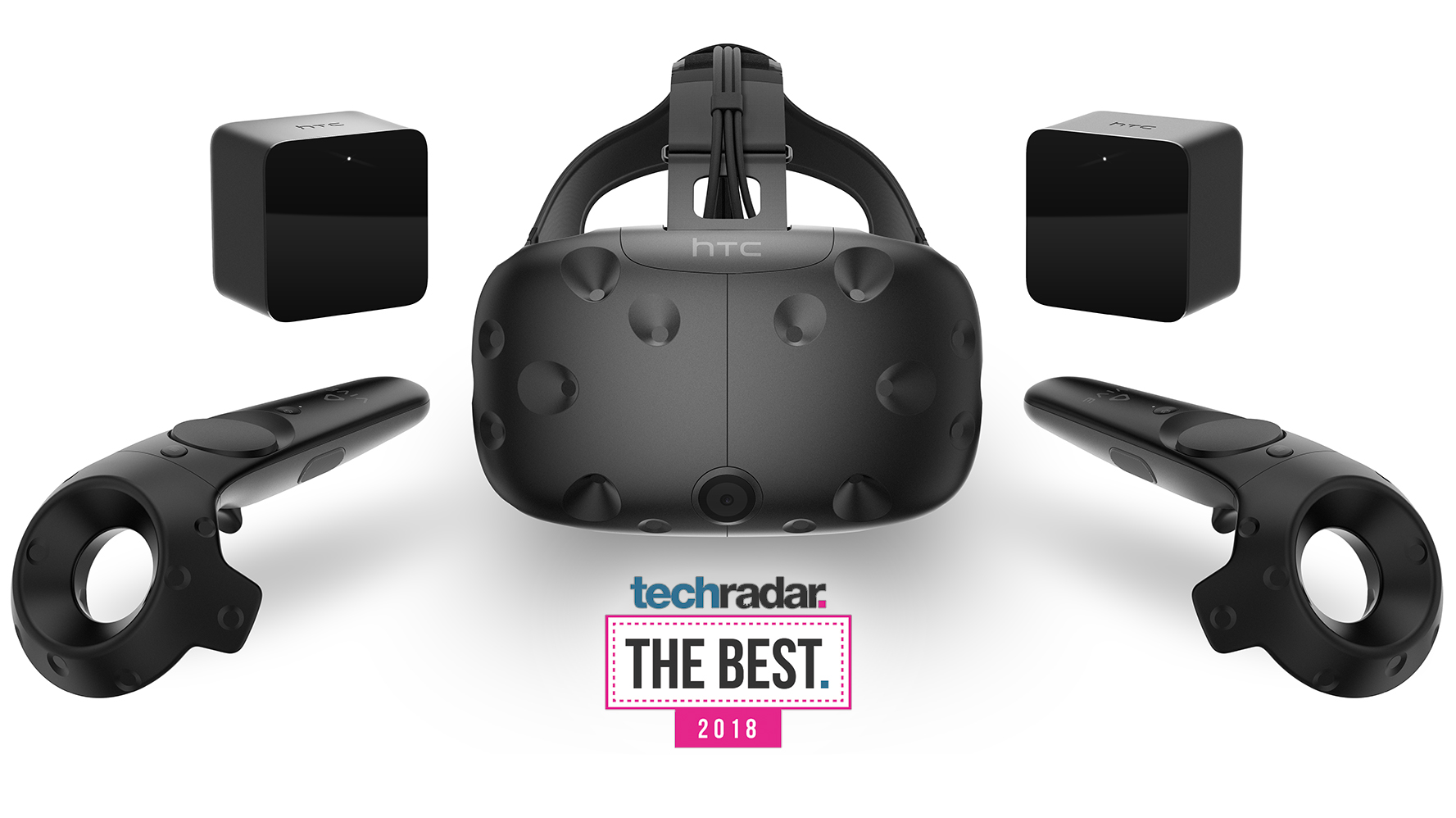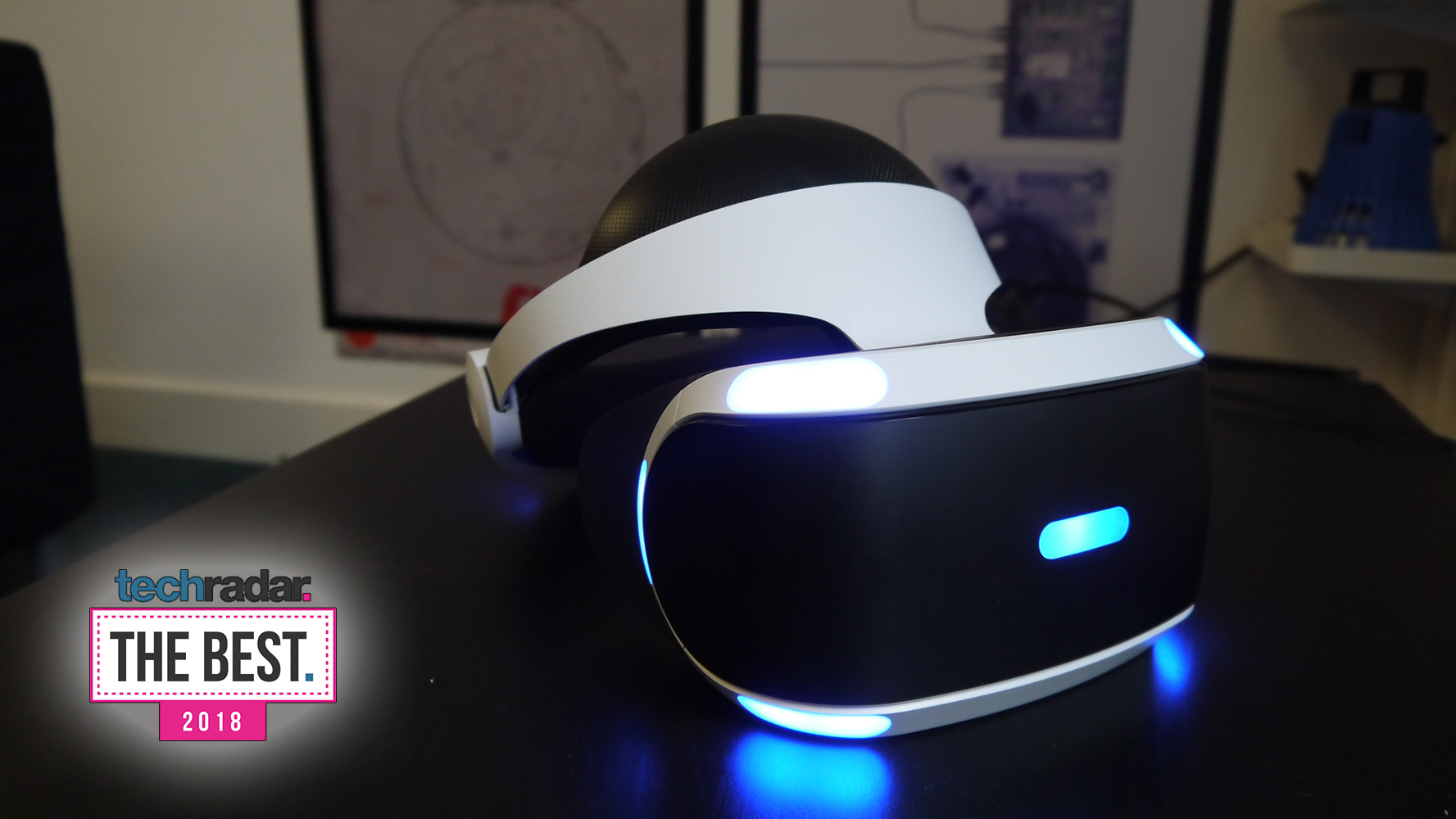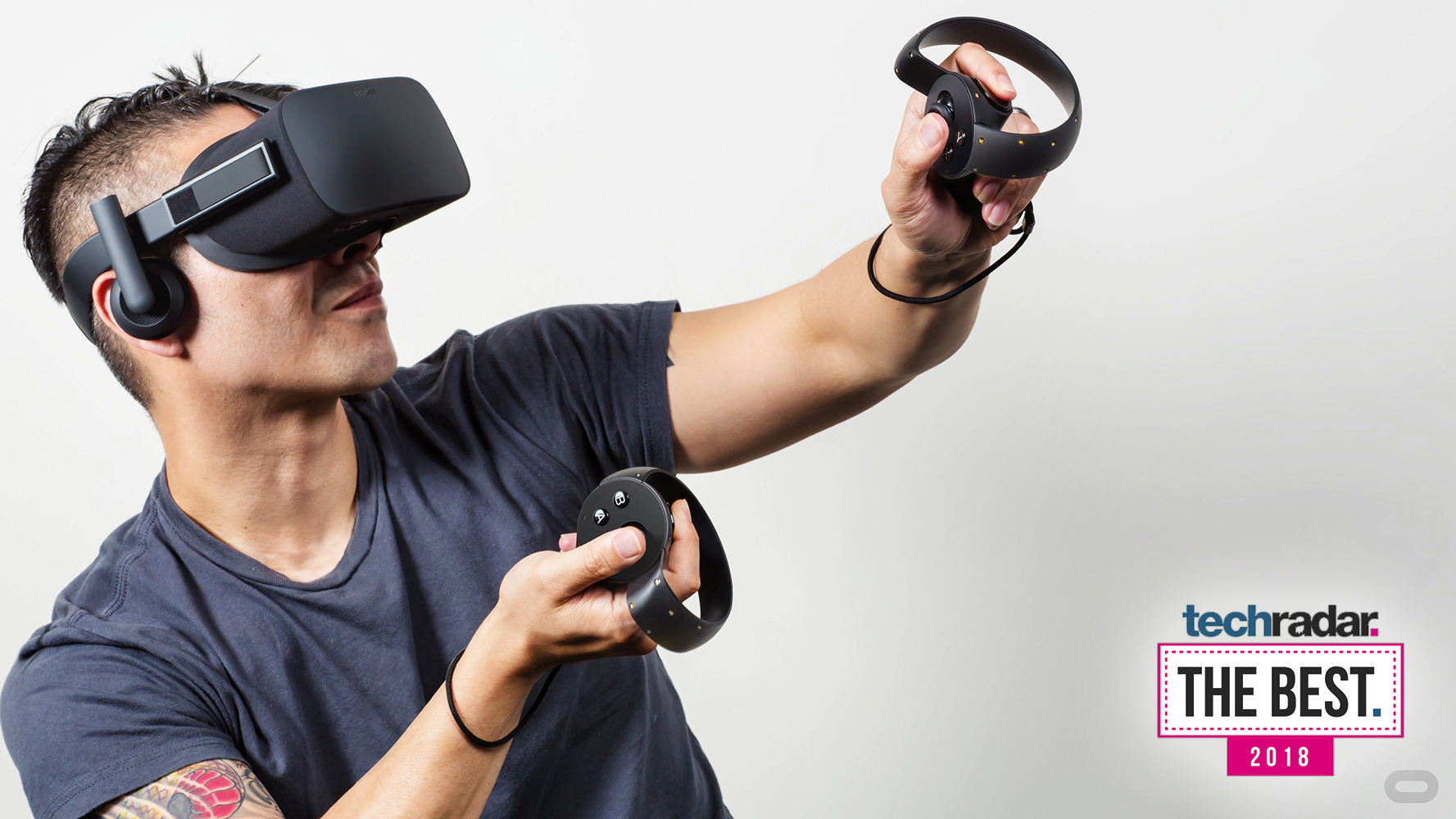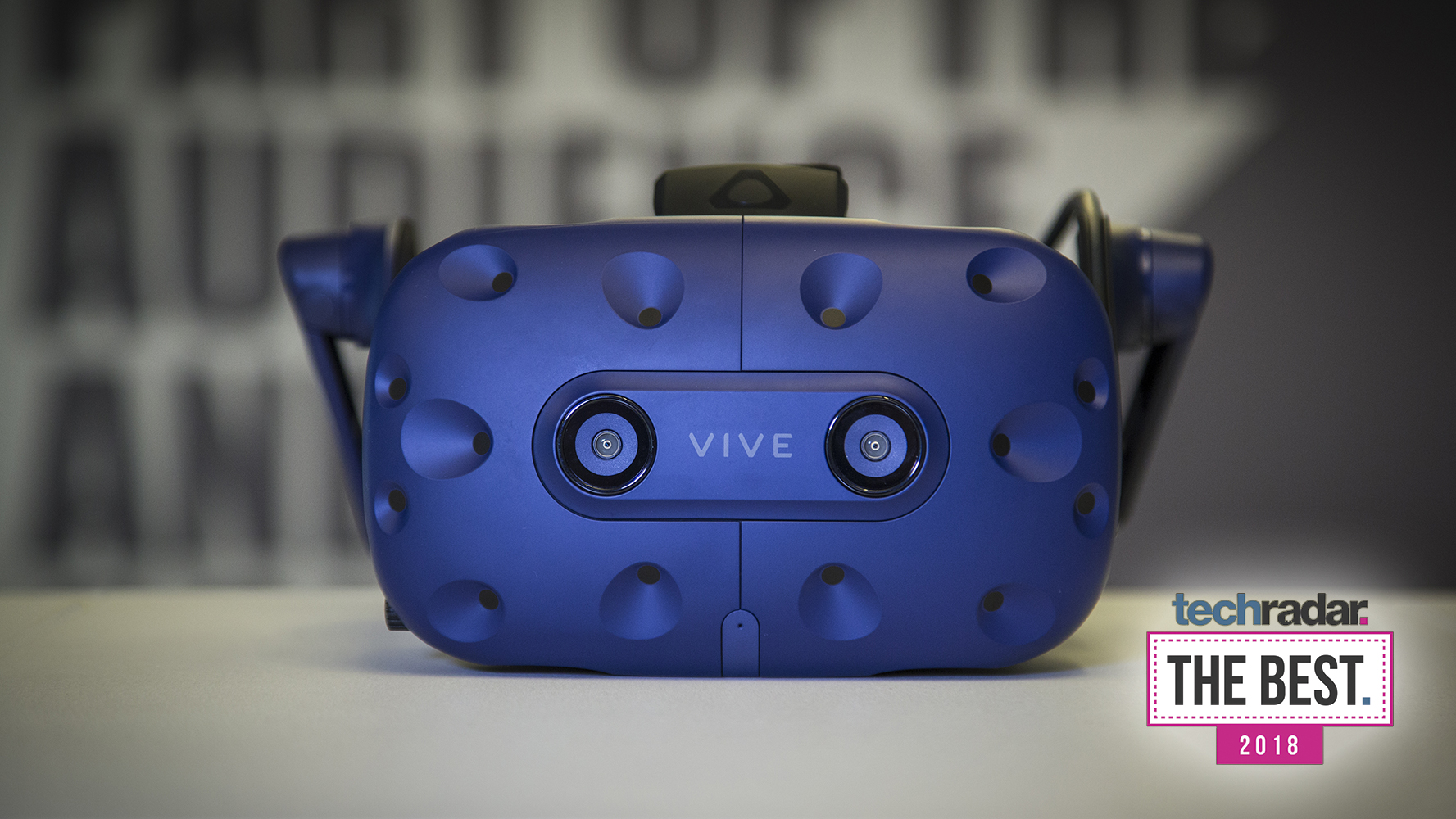The best VR headset 2018: which headset offers the best bang for your buck?
Best VR Headset Buying Guide: Welcome to TechRadar's round-up of the best Virtual Reality Headsets on PCs, phones and consoles you can buy in 2018.
The best VR headset may be a tricky thing to figure out when devices are getting ever-more advanced... and ever-less expensive.
With permanent price drops sweeping the high-end VR landscape, it's getting harder and harder to choose between VR headsets, all of which have something different to offer.
Questions you'll likely encounter when making your decision are: Do you go for performance or price? For something you can slot a smartphone in to or need a powerful PC to run?
Decisions are complicated by the fact that there is seemingly a new VR headset or significant advancement to an existing one every day. Where once Oculus Rift and HTC Vive dominated the best VR headset conversation, new headsets are springing up left and right, some even without wires.
On the flip side, more powerful VR headsets are coming to the fore as well. The HTC Vive Pro, which releases on April 5, is an sizeable upgrade over the HTC Vive that also comes at the sizeable price of $799 / £799 (about AU$1,015).
Then, of course, there are the mobile headsets, namely the Samsung Gear VR and Google Daydream View. These, too, are about to meet a major rival in the form of the standalone Oculus Go.
- The best VR games to play on your headset
You can skip down below to see our choices and explanations in depth, but it's important to note that permanent price cuts have brought the so-called traditional VR headsets more closely in line with one another.
The four best on the market right now, the Oculus Rift, HTC Vive, HTC Vive Pro and PlayStation VR, are unsurprisingly also the most expensive of all the mainstream VR headset offerings. These four offer unparalleled immersion through superior refresh rates, extremely high resolutions, and both the HTC Vive and Oculus Rift offer room-scale tracking and motion controllers for your hands right out of the box.
You get much the same perks with the HTC Vive Pro, except it doesn't include any accessories in the box, yet.
Each headset has its own distinctive strengths and weaknesses, and if you're not aware of these before you buy, it could be a very costly mistake to make. But that's exactly why we put this guide together.


When it originally released, the HTC Vive was streets ahead of its nearest competitor, the Oculus Rift. It supported room-scale tracking out of the box, and came with two motion controllers that allowed it to offer a much more immersive experience.
Now, however, the gap has narrowed. Nowadays the Oculus Rift matches much of the Vive's functionality and includes two motion controllers of its own.
But the Vive still has the edge over the Oculus because, for our money, the room-scale tracking is that much better. The feature allows you to walk around a space that's 4.5 x 4.5m big, adding another dimension to the feeling of presence that you experience while using it; you're not just pressing up on an analogue stick, you're using your legs to walk.
That's if you have enough space in your real room, of course.
The headset itself contains two 1080p screens which makes for a very crisp image. Unfortunately it's not quite high-resolution enough to prevent you from being able to discern individual pixels when you wear it, and the HTC Vive Pro, with its 78% increase in dots per inch, offers a much sharper screen in addition to built-in audio, which the original Vive lacks.
However, despite not being the latest and greatest Vive, where the original HTC gains back points is in its price.
Though it's still more expensive than Oculus Rift, the HTC Vive Pro has a few shortcomings that don't quite justify its high price tag. For the regular user who doesn't have the funds to buy an HTC Vive Pro, the HTC Vive offers a still-excellent experience for less cost.
Read the full review: HTC Vive


There's no getting around the fact that in order to run either the HTC Vive, HTC Vive Pro or the Oculus Rift you need a pretty substantial gaming PC, which is a hefty investment for most people.
That's not the case with Sony's PlayStation VR, which requires little more than a PS4 console to run.
Considering the huge difference in power between the PS4 and PC, the PlayStation VR is a surprisingly capable virtual reality headset. Its refresh rate is nice and responsive, and we've had no problems with the reliability of its head-tracking.
Thanks to Sony's backing, the selection of PlayStation VR games is also impressive. There were dozens available at launch, and many more have followed over its first year on sale.
Sony has addressed one of our biggest complaints with the PlayStation VR - that its accessories are sold separately - by offering a variety of packs and bundles with devices like the PlayStation Camera included. However, PlayStation Move controllers, while are included in some bundles, aren't in every one.
While you have to be wary of the additional charges involved, depending on what bundle you opt for, recent price cuts have made the PlayStation VR even more affordable. It may not be the top VR headset, but the PSVR is certainly making a strong case to users.
Read the full review: PlayStation VR


The current VR arms race is all thanks to one man: Oculus founder Palmer Luckey. As a teenager, Luckey collected VR tech and was fascinated with making his own headset in his garage. Numerous prototypes and a $2 billion Facebook buyout later, Oculus is still the biggest name in VR.
It's seen some decent upgrades over the years thanks to the inclusion of the Touch controllers (which we'd argue are slightly superior to the Vive's), and a couple of key price drops.
Yet, compared to the HTC Vive's room-scale technology, the Rift isn't quite as good. The reason is that while the Vive is designed to let you walk around in any direction, by default the Rift has you place its two sensors in front of you. This means that the tracking is more single-sided, and you can't let yourself get turned around, or else the sensors will lose track of you.
The experience is a bit different when you add a third sensor to the mix, but if you're comparing apples-to-apples, we still believe the Vive does room-scale a heck of a lot better.
That being said, by being cheaper than the Vive, the Oculus Rift offers a very compelling mid-range virtual reality option for those with less space to spare.
Read the full review: Oculus Rift


The newest high-end VR headset in town comes packing a lot of impressive specs. Take, for instance, the HTC Vive Pro resolution of 2880 x 1600, offering a 78% increase in dots per inch than the HTC Vive.
This means ultra-crisp visual fidelity that lets you experience textures and shadows in a way previously impossible in VR.
But the HTC Vive Pro perks don't end there. There's also the addition of built-in headphones and new nose guards that do a better job of blocking out light than the HTC Vive. All told, the HTC Vive Pro is a clear evolution in both design and tech on the older HTC Vive.
However, for all its shiny new specs, new navy blue color and a game library that's sure to grow, the HTC Vive Pro has some serious flaws.
The main one is obvious: it's expensive. It costs the same as the HTC Vive did at launch, and it doesn't come with any accessories in the box. That's right: you'll have to buy controllers and sensors separately, at least until a bundle is available later in 2018.
Setup is also a challenge with the Vive Pro because all of your firmware has to be as up-to-date as possible. Even then, you may run into some challenges, which could deter the average user from jumping into the Vive Pro experience.
Because of its price, its challenging setup and the fact that the still-excellent HTC Vive is now much less expensive, the HTC Vive Pro is likely best suited for VR enthusiasts and arcade owners. It's still an awesome headset, just one that's probably not for everyone.
Read the full review: HTC Vive Pro
Contributer : Techradar - All the latest technology news https://ift.tt/1IiBU6z

 Reviewed by mimisabreena
on
Thursday, April 05, 2018
Rating:
Reviewed by mimisabreena
on
Thursday, April 05, 2018
Rating:















No comments:
Post a Comment